The First Doctor was played by William Hartnell from 1963-1966. He was initially a very cantankerous old man, much more interested in saving himself than the universe. He also thought himself above humanity until he was about to kill a caveman in cold blood. He was stopped by Ian Chesterton, a schoolteacher of his granddaughter Susan's whom he had kidnapped along with fellow teacher Barbara Wright because they were investigating where Susan came from and happened upon the TARDIS. Without Ian's quick thinking, the Doctor wouldn't have become a much more compassionate figure. He regenerated for the first time after he had pushed his first body to the limit following his first battle with the Cybermen.
.jpg) The Second Doctor was played by Patrick Troughton from 1966-1969. He was outwardly a much warmer and kinder individual, as well as had the appearance of being buffoonish. Inwardly, this incarnation of the Doctor was a bit darker and more cunning. He tended to tended to keep that part of himself hidden so as to better carry out his plans. After awhile, the Time Lords put him on trial for breaking their "Non-Interference Policy". He made the argument that he had to, because there were clever enemies out there who needed an equally clever opponent to stop them. The Time Lords partially agreed, and exiled him to Earth and forced him to regenerate.
The Second Doctor was played by Patrick Troughton from 1966-1969. He was outwardly a much warmer and kinder individual, as well as had the appearance of being buffoonish. Inwardly, this incarnation of the Doctor was a bit darker and more cunning. He tended to tended to keep that part of himself hidden so as to better carry out his plans. After awhile, the Time Lords put him on trial for breaking their "Non-Interference Policy". He made the argument that he had to, because there were clever enemies out there who needed an equally clever opponent to stop them. The Time Lords partially agreed, and exiled him to Earth and forced him to regenerate..jpg) The Fourth Doctor was played by Tom Baker from 1974-1981, making him the longest serving Doctor in terms of televised stories. This incarnation was a bit more eccentric that his predecessors, and his constant costume changes reflect that, especially that ridiculously long scarf and off-the-wall personality. The creative team at the time likened him to a Bohemian wanderer. It was also during this time that Hitchhikers Guide to the Galaxy creator Douglas Adams was a writer and a producer for the show. He was also the face of Doctor Who for American fans at that time. My own mother considers him her Doctor.
The Fourth Doctor was played by Tom Baker from 1974-1981, making him the longest serving Doctor in terms of televised stories. This incarnation was a bit more eccentric that his predecessors, and his constant costume changes reflect that, especially that ridiculously long scarf and off-the-wall personality. The creative team at the time likened him to a Bohemian wanderer. It was also during this time that Hitchhikers Guide to the Galaxy creator Douglas Adams was a writer and a producer for the show. He was also the face of Doctor Who for American fans at that time. My own mother considers him her Doctor..jpg) The Sixth Doctor was played by Colin Baker (no relation to Tom) from 1984-1986. For a time, this Doctor bore the brunt of the blame in the show's drop in quality for some fans, but their opinions around after listening to his audio dramas from Big Finish. His personality was rather volatile at times, ranging from a petulant egoist to portentous and arrogant. His outfit, which Baker described as "an explosion in a rainbow factory", reflected this unpredictability. However, he mellowed out considerably once he took Evelyn Smythe on as a traveling companion in the aforementioned audio dramas. His abrasiveness also masked a strong determination to put things right.
The Sixth Doctor was played by Colin Baker (no relation to Tom) from 1984-1986. For a time, this Doctor bore the brunt of the blame in the show's drop in quality for some fans, but their opinions around after listening to his audio dramas from Big Finish. His personality was rather volatile at times, ranging from a petulant egoist to portentous and arrogant. His outfit, which Baker described as "an explosion in a rainbow factory", reflected this unpredictability. However, he mellowed out considerably once he took Evelyn Smythe on as a traveling companion in the aforementioned audio dramas. His abrasiveness also masked a strong determination to put things right..jpg) The Eighth Doctor was played by Paul McGann in the aforementioned TV movie in 1996 as his only televised story. However, he has continued to play the role in audio dramas commissioned by Big Finish Productions to this day. This Doctor is a unique case in that most of his characterization is explored in the expanded universe media like novels, comics, etc. He's also the first Doctor to express romantic affection, something that some fans took umbrage with. He possessed the humanity of his 5th incarnation, but was more quietly amused by its quirks and failings compared to the exasperation from some of his predecessors. As of this writing, his current companion in the audios is Frankenstein author Mary Shelley.
The Eighth Doctor was played by Paul McGann in the aforementioned TV movie in 1996 as his only televised story. However, he has continued to play the role in audio dramas commissioned by Big Finish Productions to this day. This Doctor is a unique case in that most of his characterization is explored in the expanded universe media like novels, comics, etc. He's also the first Doctor to express romantic affection, something that some fans took umbrage with. He possessed the humanity of his 5th incarnation, but was more quietly amused by its quirks and failings compared to the exasperation from some of his predecessors. As of this writing, his current companion in the audios is Frankenstein author Mary Shelley..jpg) The Tenth Doctor was played by David Tennant from 2005-2010. His first story was "The Christmas Invasion", which aired in 2005, his last being the second part of "The End of Time", which aired on New Year's Day 2010. This incarnation was pretty cheerful and charismatic, but underneath that he still had some of the anger and survivor's guilt of his predecessor. He was also very forgiving. He also tried to keep his companions close, as a way for them to keep him from going over the edge. He also attempted to resolve situations without killing as much as possible, even refusing to pick up a gun. He's also my Doctor.
The Tenth Doctor was played by David Tennant from 2005-2010. His first story was "The Christmas Invasion", which aired in 2005, his last being the second part of "The End of Time", which aired on New Year's Day 2010. This incarnation was pretty cheerful and charismatic, but underneath that he still had some of the anger and survivor's guilt of his predecessor. He was also very forgiving. He also tried to keep his companions close, as a way for them to keep him from going over the edge. He also attempted to resolve situations without killing as much as possible, even refusing to pick up a gun. He's also my Doctor.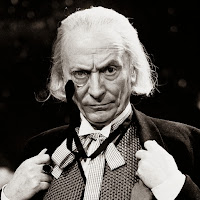.jpg)
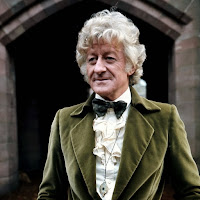.jpg)
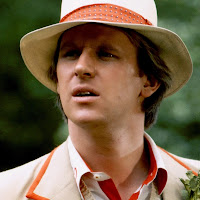.jpg)
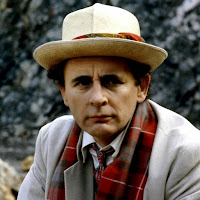.jpg)
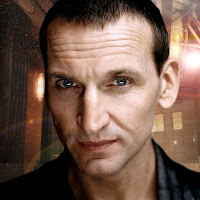.jpg)
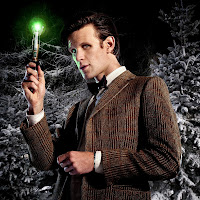.jpg)
This is the first time I have read your blog, very well written and thought-out. I've been a fan since 1974 and I love Doctor Who. I look forward to reading more of your work.
ReplyDeleteHappy Holidays,
Stu Berman from Las Vegas, Nevada USA
Thanks, Stu. I appreciate you taking the time to read this. I started watching during Tennant's time, and have continued onward from there, as well as backwards to see the previous incarnations. I got most of my info for this entry from the TARDIS Wikia. :)
ReplyDelete